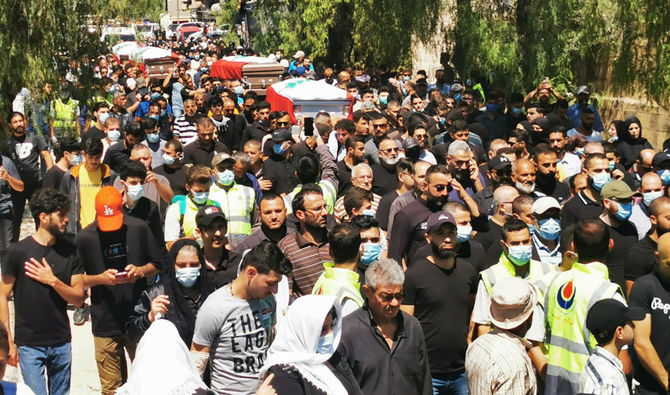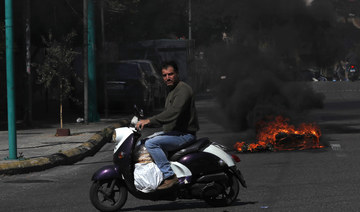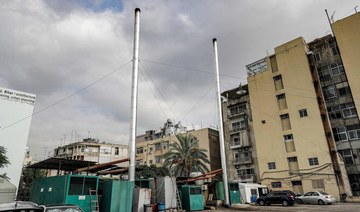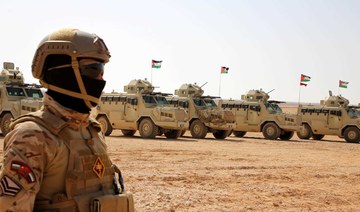BEIRUT: Lebanon’s parliamentary committees on Thursday approved a ration card for the needy population, which is increasing at an alarming rate, as the country is teetering on the edge of economic collapse.
According to the World Bank, the national currency has lost a majority of its value since the end of 2019, resulting in more than half the population falling into poverty.
Ration cards would help struggling families with basic essentials such as petrol and groceries. But they have not been referred to parliament and funding for such a program has not been found.
The MPs of the Lebanese Forces Party voiced their rejection of “the randomness and the electoral accounts” in studying the ration card.
In this same context, Progressive Socialist Party leader Walid Jumblatt said: “The ration card would have no value without coordination with the World Bank and without a government that adopts a reform policy.”
Meanwhile, the country mourned the deaths of a southern family killed in a car accident, caused by petrol queues, earlier in the week in Saadiyat.
Fatima Koubeissi and her four daughters — Zahraa, Aya, Lia, and Tia — were killed in the accident. Their widowed father, Imad Hawile, was in Africa at the time of the accident looking for work and has since returned to Lebanon.
Frustrated citizens took to the streets again on Thursday to protest the deplorable conditions in the country.
Protesters blocked roads in Akkar and prevented a truck carrying milk and diapers from getting through. The truck was looted as the supplies were distributed to people in the area.
On Wednesday, a similar scene played out as protesters seized a fuel tank in Minieh, north of Lebanon, and distributed the fuel to the people.
Calls on social media were issued to “close roads and protest over the shortages of gasoline, diesel, and medicine along with the dramatic increase of food prices.”
Roads in the southern city of Sidon, and those leading to Tyre were closed, along with the Jal El-Dib road and the high road leading to Tripoli. The army re-opened the roads without clashing with protestors.
On Wednesday night, roads were closed in other areas while there were reports of protesters throwing flammable materials at the Lebanon Energy Ministry building in Beirut. A large number of truck drivers also parked their vehicles on the Zouk highway leading to the capital while protestors in Sidon took to the streets to express their anger at the ruling class.
In an attempt to quell the fuel shortage situation, President Michel Aoun chaired a meeting that included Finance Minister Ghazi Wazni, Energy Minister Raymond Ghajar, and Riad Salameh, the governor of the Banque Du Liban (BDL).
They decided to enable BDL to make the necessary arrangements to contain the crisis until more legislation being studied by parliament is passed.
Following the meeting, BDL announced that it will grant loans for the state “due to the exceptional and dangerous circumstances that Lebanon is going through and the state’s failure to pay off its debts.”
This decision requires the signature of Lebanon's caretaker Prime Minister Hassan Diab, who will reportedly refuse to sign because he represents a resigned government that has no power to take such decisions.
If it gets signed, the BDL proposal will help fund the import of gasoline based on the dollar exchange rate set at 3,900 Lebanese pounds, which means that a gas tank would cost between 65,000 and 70,000 pounds.



























